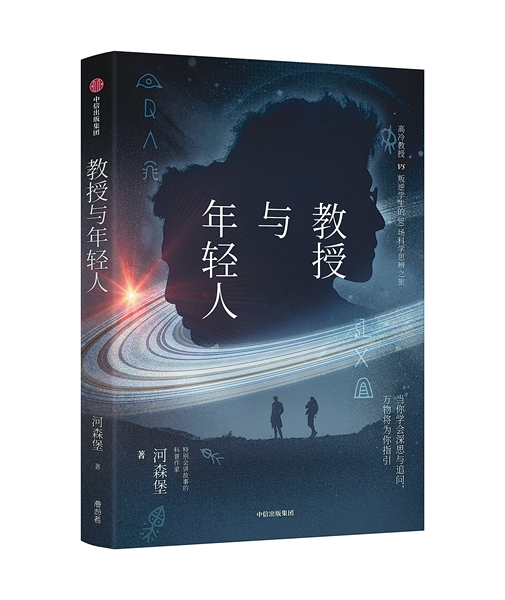

Writer tackles online questions from the general public with a confidence built upon deep examination of the issues, Yang Yang reports.
When Yuan Shuo, known online as Hesenbao, was a docent at the National Museum of China, there were questions that came up, at a particular point, repeatedly from visitors. The questions were posed at the display of the tortoise shells from the Shang Dynasty (c.16th century-11th century BC), upon which are inscribed the earliest form of Chinese characters. They were:"What's the point of studying those tortoise shells? How much money can you make from it?"
Yuan, 33, is now a well-known writer in the field of knowledge popularization, with 6.38 million followers on Chinese microblogging platform Weibo. Fascinated by all kinds of knowledge from a young age, he became a docent at the NMC more than 10 years ago after graduating from university, where he majored in computer science.
He observed that today, although people can easily get all kinds of information from the internet, they seem increasingly ignorant of what should be common knowledge.
People ask questions online such as: "Why should we read?""Why should we study advanced mathematics?" "Why is logic important?" And "why are the elderly valuable to human beings?"
"We all know that elderly people should be respected and cared for, but when the COVID-19 pandemic broke out, some people asked online, 'why not lift the lockdown for good? If the elderly people suffer, it would be natural selection'," Yuan says.
"I was very angry at those people, so I wrote an article refuting their ideas. But some people came to me, asking, 'we all know morals require us to respect elderly people, but what on earth is their use?' I thought, fine, since you ask, I will tell you why-not from an emotional perspective, but with anthropological evidence that shows how important elderly people are to the evolution and survival of the human species," he says.
In 2020, China realized its goal of eradicating extreme poverty. There were tens of thousands of articles and news reports online about this achievement. However, he found few of them could explain why poverty alleviation is so important.
"They usually listed statistics that compared the number of households in poverty before and after the campaign, or recounted one or two related stories, which could not convince me why poverty alleviation matters so much," he says.
"Then I wondered whether I could write an article, in which I won't talk about the spirit of, or policies concerning, poverty alleviation, but its importance as evidenced by findings in biology and animal behavior," he says.
Compared with values, feelings or spirit, a scientific perspective is more convincing because "there is an important principle about science-that scientific theories can guide practice when they are proved right on the premise that they can be falsified", he says.
"If you want to discuss a question, it's better to argue from a scientific perspective so that you will get a conclusion that (theoretically) could be falsified. A falsifiable conclusion can really convince people," he says.
From 2019 to May 2022, Yuan wrote 30 articles trying to answer these questions from scientific perspectives, which have been published recently as a book, Jiaoshou Yu Nianqingren (The Professor of Anthropology and His Student), by Citic Press.
The book consists of four parts-history and culture, nature and science, social life, and cognition and thinking-allowing readers to follow the 30 questions and think about society and history, the universe, ancient times and the philosophy of life.
From the importance of the tortoise shells with inscriptions of early Chinese characters and poverty alleviation to the value of elderly people and the meaning of the red color of China's national flag, Yuan makes his arguments in the style of a dialogue between an anthropologist and his student.
"It's not my invention. Actually a lot of great classics were created in the form of dialogue, such as The Analects of Confucius and The Republic. Comparatively, dialogues are easier to be accepted by readers because the reading process is like watching two people talking. It's a more objective point of view," he says.
Yuan acquired this objective point of view through studying computer science, which was not his first choice for university.
"Computer science trained me in rigorous scientific logic that draws a clear line between yes and no," he says.